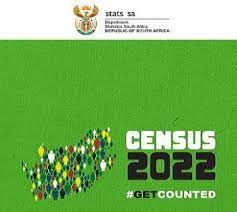
APPARENTLY, earlier this year South Africa held a decennial national census. Well, so we thought. In tune with the times, I registered us online and identified our house on Google Maps. Then, in spite of radio announcements about a looming deadline absolutely nothing happened, although we had received an SMS with a confirmatory reference number. The Statistics South Africa website had endless background information extolling its virtues, but no hint of a downloadable census form.
Then one Sunday morning a car and two officials appeared at the garden gate. One scribbled down our names on a blank sheet of paper. The other required me to use his tablet to verify the location of the house. Neither could throw any light on the unyielding website or the official silence out there.
In the past, comprehensive and weighty forms have been delivered and then collected. Stickers were attached to postboxes indicating that the census process was complete. I can recall answering questions about education, religion, language and place of birth; the sort of data you might expect national statisticians to be interested in collecting. Supplying such information was regarded as a civic duty and in everyone’s best interest.
Censuses in South Africa have had a chequered history. In the past, reliable figures on any aspect of life applied only to whites and people in general in urban areas. Anything else was a guess, politely described as an estimate. Once aerial photography had become available black rural areas were surveyed from above, the number of dwelling places counted, and a standard multiplier applied. Perhaps history is now repeating itself.
But there is another vague parallel. In the segregation and apartheid eras many South Africans had good reason to duck beneath the official radar. My reaction in 2022 to exclusion from the census has been one of total indifference, entirely alien to a lifelong responsible and law-abiding citizen. Just before this year’s February deadline it was reported that 800 000 people had registered online and only 600 000 of them had submitted a return, so it would appear that many people might have been left out in the statistical cold.
Why this sense of detachment? The reasons are not hard to find. For some years, municipal government has been collapsing and the evidence is highly visible in potholed roads and filthy streets. Exactly a year ago our suburb was full of smoke and police gunfire was clearly audible during an eight-day insurrection that the government seemed reluctant to confront. The perpetrators are still mainly at large and a great deal of loot that could fuel another uprising is unaccounted for.
Worst of all, is the sobering fact that the country is run by gangsters. ANC branches, now busy with the process of electing new national leadership, are in reality criminal enterprises populated by people who dispense public funds and jobs for personal gain, not the general good. The system of cadre deployment has inevitably fallen apart as a result of factionalism: every organ of government is now a battleground. And every organ of government now harbours saboteurs.
Under these circumstances it is hard to identify with any part of the state/ANC (the two are indistinguishable) since it clearly does not have the welfare of citizens as a whole as a priority. Recent draconian measures during the pandemic have not helped and added interest to creeping alienation. South Africa is not a functioning democracy in spite of appearances. Indeed, it has many of the characteristics of an authoritarian state in which party-political membership constitutes a privileged elite, a nomenklatura in the old Soviet parlance.
In such circumstances people start to withdraw from their individual obligations however well-engrained. No doubt in due course the Statistician-General will host a media event to introduce the census results. We ‒ and heaven knows how many others ‒ won’t figure in it. The symbolism will be entirely appropriate.